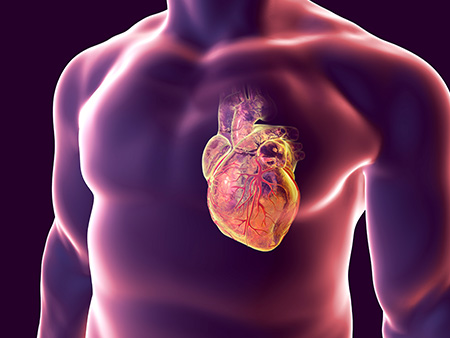Media contact: Adam Pope
University of Alabama at Birmingham researchers Sudeep Aryal, M.D., and Navkaranbir Bajaj, M.D., received a one-year grant, “Feasibility and Accuracy of hybrid Magnetic resonance and Positron Emission Tomography with 18F-Fluorodeoxyglucose in diagnosing cardiac sarcoidosis” from the UAB Center for Clinical and Translational Science.
researchers Sudeep Aryal, M.D., and Navkaranbir Bajaj, M.D., received a one-year grant, “Feasibility and Accuracy of hybrid Magnetic resonance and Positron Emission Tomography with 18F-Fluorodeoxyglucose in diagnosing cardiac sarcoidosis” from the UAB Center for Clinical and Translational Science.
This collaborative grant will explore the feasibility and diagnostic accuracy of hybrid PET/MRI technology against MRI or PET alone. PET, or positron emission tomography, uses small amounts of radioactive compounds to show activity in biological processes in the body. MRI, or magnetic resonance imaging, scans the body to show detailed images of what is inside and provide functional information on organs.
The hybrid technology could help reduce the need for multiple scans, assisting in monitoring disease progression and resolution in cardiac sarcoidosis patients. It also could facilitate accurate, timely diagnoses, which are necessary for this rare disease. Cardiac sarcoidosis is characterized by inflammatory cell growth in the heart, causing irregular heartbeats or heart failure.
“Cardiac sarcoidosis is challenging to diagnose, which contributes to the high rates of death and disability observed in patients who have the disease,” Bajaj said. “Combining both the scans in the state-of-the-art hybrid PET/MRI scanner puts UAB in a unique position to lead clinical care and research among these patients.”
Bajaj is an assistant professor in UAB’s Divisions of Cardiovascular Disease and Molecular Imaging and Therapeutics, and Aryal is a fellow in the cardiovascular disease fellowship program.